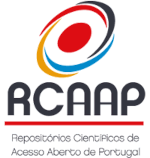Bridging knowledge and collaboration: The role of global scientific dialogue and interdisciplinary research in health sciences
DOI:
https://doi.org/10.62741/ahrj.v2iSuppl.%202.101Keywords:
editorialAbstract
In the contemporary landscape of Health Sciences, the role of academic research and scientific dialogue is paramount to advance the understanding of complex health issues. As the demands on public health systems increase, fostering a comprehensive and inclusive research environment is essential to address the multifaceted challenges of healthcare. Academic publication serves as the cornerstone of scientific communication, enabling the dissemination of novel findings and facilitating critical discourse among scholars and practitioners across the globe. Through rigorous peer-reviewed publications, researchers contribute to the global pool of knowledge, ensuring that scientific progress is not only shared but also critically evaluated, thus advancing both theoretical and practical aspects of health-related fields. The importance of these publications extends beyond mere dissemination; they represent the synthesis of evidence, translating scientific inquiry into actionable knowledge that can inform and guide policy, clinical practices, and public health strategies.
Science recognizes the importance of engaging students as early-stage researchers, cultivating their analytical skills, and encouraging their active participation in scientific inquiry. Early exposure to research not only enhances the educational experience but also fosters a sense of responsibility and ownership over the scientific process. By nurturing a culture of curiosity and critical thinking, we equip students with the tools necessary to become the next generation of healthcare researchers, leaders, and innovators. Furthermore, the inclusion of multiple generations in research teams enriches the scientific process. The intergenerational exchange of knowledge and experience fosters mentorship, enhances the transfer of tacit knowledge, and ensures that research efforts remain dynamic and forward-looking. The collaboration between experienced researchers and emerging scholars ensures the continuity of expertise while simultaneously promoting the infusion of fresh perspectives and innovative ideas into ongoing research projects.
This edition includes a compilation of scientific works around orofacial therapeutics and harmonization presented at the III International Symposium on Orofacial Harmonization of the Portuguese Association of Orofacial Harmonization and Therapeutics. The event explores interdisciplinarity and highlights the importance of including young researchers into research projects and the power of collaboration in Health Sciences.
The collaboration between academic institutions, healthcare professionals, and students is essential for ensuring that research remains relevant, impactful, and ultimately beneficial to society. By bridging academic silos and encouraging cross-generational collaboration, we can accelerate the pace of discovery and translate scientific findings into real-world solutions. The future of Health Sciences research lies in the establishment of robust and collaborative networks that transcend barriers and frontiers.
References
NA
Downloads
Published
Issue
Section
License
Copyright (c) 2025 Athena Health & Research Journal

This work is licensed under a Creative Commons Attribution-NonCommercial 4.0 International License.
Copyright of published papers is assigned to the Journal, but all content is licensed under the terms of Creative Commons Non-comercial 4.0 International License. Thus users are allowed to read, download, copy, distribute, print, search, or link to the full texts of the articles, or use them for any other lawful purpose, without asking prior permission from the publisher or the author. This is in accordance with the BOAI definition of open access.














